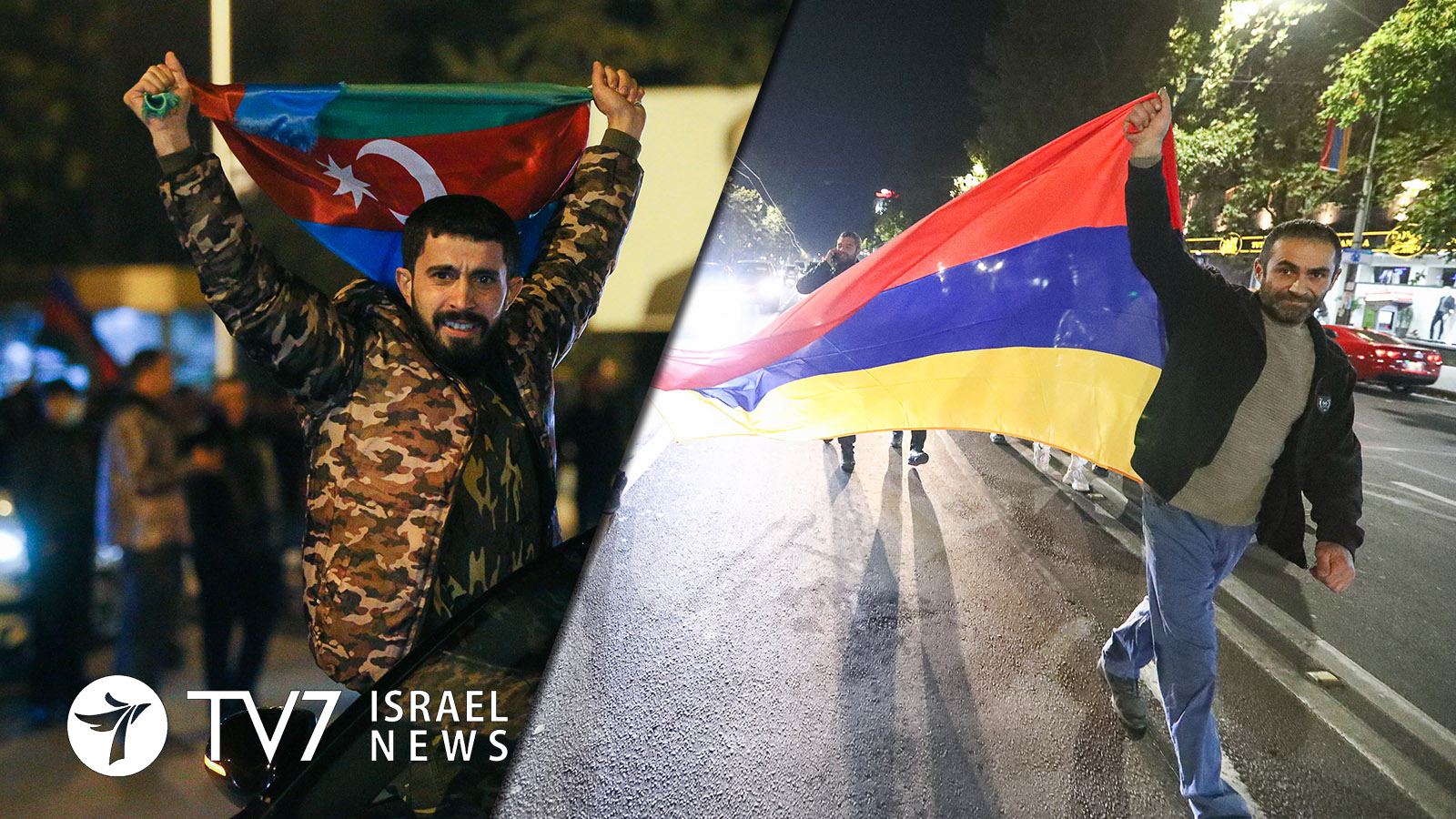Armenia, Azerbaijan and Russia announce a truce to end the military conflict over the Nagorno-Karabakh region after more than a month of bloodshed, that went into effect last night at midnight.
Armenian Prime Minister Nikol Pashinyan first announced the signing on social media early this morning, which was later confirmed by Moscow and Baku.
“The signed trilateral statement will become a (crucial) point in the settlement of the conflict,” said Azerbaijan’s President Ilham Aliyev during a televised online meeting with Russian President Vladimir Putin.
Putin announced that Russian peacekeepers would be deployed along the frontline in Nagorno-Karabakh, as well as an adjacent corridor with Armenia.
The Russian Defense Ministry announced this morning that 1,960 military personnel were already en route to an unnamed air base to be airlifted along with their equipment and vehicles. The force is set to remain in place for at least five years.
“We are operating on the premise that the agreements will create the necessary conditions for a long-term and fully-fledged settlement of the crisis around Nagorno-Karabakh on a fair basis and in the interests of the Armenian and Azeri peoples,” Putin declared. He said these aspects include an exchange of prisoners of war and the bodies of casualties, the return home of people displaced from Nagorno-Karabakh, and help of Russian border guards for the resumption of operations of all economic and transport links that had been disrupted by the fighting.
Thousands were killed in the six-week conflict that threatened to plunge the wider region into war.
Nagorno-Karabakh is internationally recognized as part of Azerbaijan, but populated and – until recently – totally controlled by ethnic Armenians.
The Armenians were repeatedly forced to retreat by relentless advances by Azerbaijan’s armed forces.
Since fighting erupted on 27 September, Baku claims to have retaken much of the land in and around Nagorno-Karabakh that it lost in a 1991-94 war in which an estimated 30,000 people were killed.
Azerbaijan also proclaiming victory in the battle for the enclave’s second-largest and strategically positioned they call “Shusha.” Armenians refer to the strategically positioned city as “Shushi,” and regard it as the capital. Capture of the mountaintop city, which overlooks Stepanakert, appears to have been a turning point in the conflict.
While an Azeri Defense Ministry video posted online purported to show the country’s national flag flying over deserted streets in Shusha, several Armenian politicians denied the city had fallen even though ethnic Armenian forces admitted it was no longer under their control.
Today’s truce, which follows 3 failed ceasefires, permits Azerbaijan to retain all of its territorial gains including the Shusha/Shushi. The ethnic Armenian forces are also compelled to hand over control of a number of other territories between now and 1 December.
The Kremlin’s role in the tripartite agreement secured its position as the main arbiter in a region that it considers as as its ‘own backyard. Russia maintains a defense pact and military base in Armenia.
Turkey has staunchly supported Azerbaijan. Although the scale of Ankara’s involvement is unclear, there has been a sharp spike in its interest in the region. Azeri President Aliyev announced that Turkey will also be involved in peacekeeping efforts.
In a statement released on social media, Armenian Premier Pashinyan attempted to justify his agreement to the deal, saying that “the decision was made based on a deep analysis of the combat situation and in conjunction with the best experts.”
“This is not a victory, but there is no defeat until you consider yourself defeated,” said the Armenian leader, adding, “We will never consider ourselves defeated and this shall become a new start of an era of our national unity and rebirth.”
Violent protest against the deal nevertheless broke out in Yerevan, the Armenian capital. Several hundred demonstrators gathered in front of government buildings, where they shouted “We will not give it up,” referring to Nagorno-Karabakh, and demanded to see Pashinyan. Video posted on social media showed dozens of rioters storming the parliament, smashed furniture and reportedly beat the President of the National Assembly Ararat Mirzoyan.
